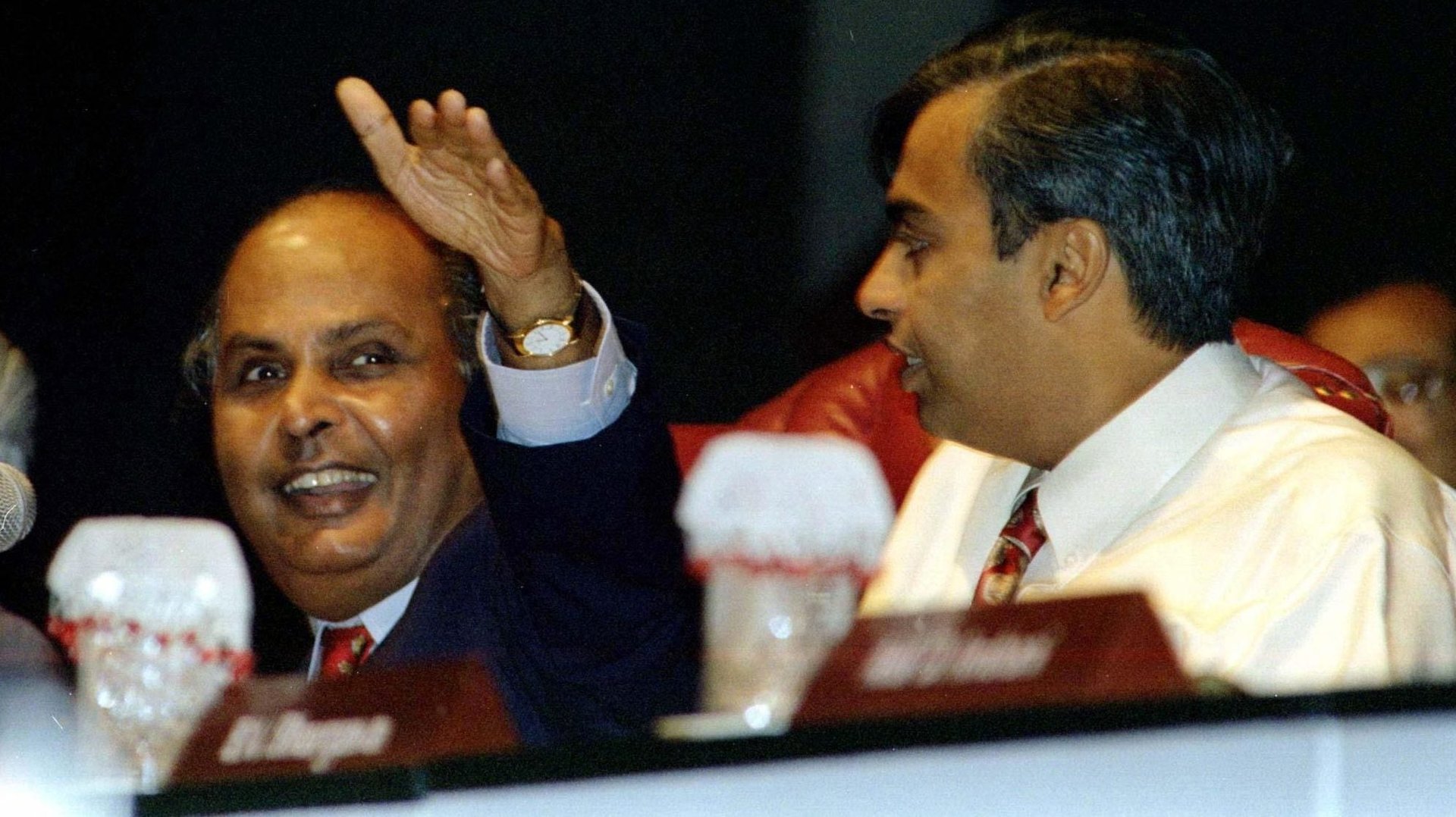How his father’s quip about a postcard inspired Mukesh Ambani to build a telecom giant
India’s richest man Mukesh Ambani took the country’s telecom sector by a storm when he launched Reliance Jio in 2016. Today, the youngest telecom company in the country has changed the dynamics of the sector forever and is giving decades-old players a run for their money.


India’s richest man Mukesh Ambani took the country’s telecom sector by a storm when he launched Reliance Jio in 2016. Today, the youngest telecom company in the country has changed the dynamics of the sector forever and is giving decades-old players a run for their money.
While Ambani is widely credited for making data affordable for millions of Indians, he says he got the inspiration from his father.
Dhirubhai Ambani, the founder of Reliance Industries, once held up a postcard in his office and wondered, “if every Indian could speak with each other at the cost of this postcard, where will India be?” according to economist and business journalist Omkar Goswami.
Speaking with Goswami during a book launch on Oct. 19, Mukesh said it were his father’s views that inspired him to steer Reliance Industries towards telecom:
“If you look at telecom, our view was that at the end of the day, we’ve got to embrace technologies of the future. And this was my father’s view, he’d always say, I don’t want to be only a textile company. If you want to move from textiles, you should move to businesses of the future and you should invest in next generation talent.”
And that is what we’ve done. Even when we thought through telecom together, the roadmap was very clear. The roadmap was to make calling cheaper than the price of a postcard. Today it is free. And as we migrate to the future, it will not only connect people but also billions of things.
Dhirubhai was the son of a schoolteacher who came to India’s financial hub Mumbai in 1957. “He came with Rs1,000 and a belief that if you invest in businesses of the future and in talent, we can create our own Indian dream, and we can create one of the largest enterprises or companies in the world,” Mukesh said during the book launch.
Dhirubhai set up Reliance Industries in 1966 as a small textile manufacturer unit. Now, the company is the most valued private company in India, and a leader in several sectors such as telecom, retail, and oil.
Reliance Jio currently has a userbase of nearly 400 million, way higher than the closest rival—and once a market leader—Bharti Airtel’s 329.07 million.
Earlier this year, Reliance Jio further strengthened its business by attracting global technology giants Facebook and Google to invest in its next-gen technology arm Jio platforms. The investments have, however, raised concerns over Reliance’s dominant position and data security.
But this isn’t the first time that Reliance has faced criticism. In his conversation with Goswami, Mukesh recalled the time when his father faced regulatory penalties and how the company “changed the mindsets of the ruling class, the mindsets of the bureaucracy to be more empowering, to liberalise.”
…there was a time when Reliance was show-caused by the government and penalised for producing more than its licensed capacity. And then with the economic reforms, today we only incentivise production, and everything that we do today is linked to production and more production.
So that is how much mindsets have changed.